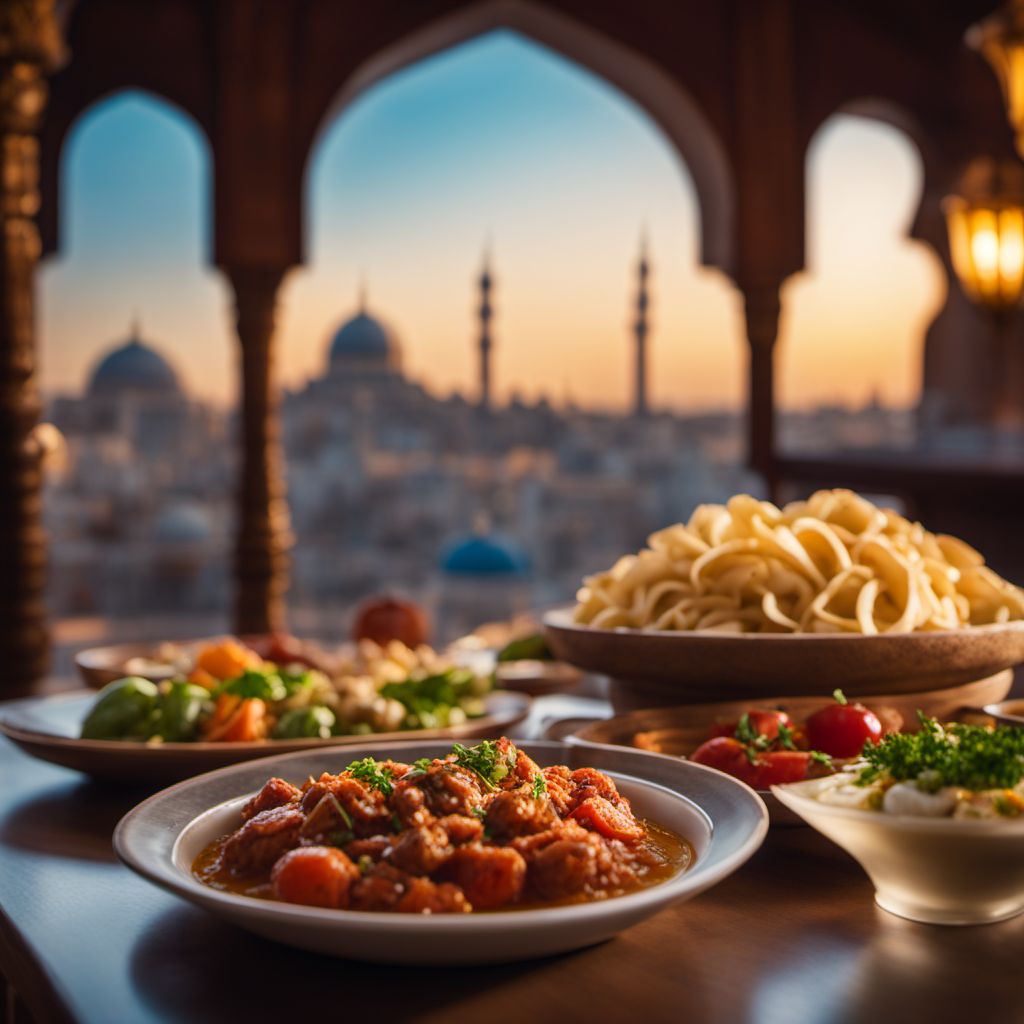
Cuisine
Levantine cuisine
Levantine cuisine is characterized by its use of fresh ingredients and simple cooking techniques. The cuisine is also known for its use of olive oil, which is a staple in the Mediterranean diet. Levantine cuisine is typically light and healthy, with dishes that are often grilled or roasted. The cuisine is a reflection of the region's rich history and culture, and is a testament to the resilience of its people.
Typical ingredients
Olive oil, Fresh herbs (such as parsley, mint, cilantro), Garlic, Lemon, Tomatoes, Eggplant, Chickpeas, Lamb, Chicken, Fish, Yogurt, Tahini, Pomegranate molasses
Presentation and garnishing
Levantine dishes are often presented in large communal platters, with diners using bread to scoop up the stews and sauces. The cuisine is also known for its use of garnishes, such as fresh herbs and pomegranate seeds, to add flavor and color to the dishes.
Levantine cuisine is a testament to the region's rich cultural heritage and resilience. Despite the challenges faced by the Levantine people, their cuisine remains a source of pride and joy.
More cuisines from this region...
Syrian cuisine, Lebanese cuisine, Jordanian cuisine, Israeli cuisine, Iraqi cuisine, Palestinian cuisine, Mizrahi Jewish cuisine
History
Levantine cuisine has a long and rich history that dates back to ancient times. The cuisine has been influenced by the various cultures that have inhabited the region over the centuries, including the Greeks, Romans, Ottomans, and Arabs. Levantine cuisine is also influenced by the region's Islamic heritage, which prohibits the consumption of pork and alcohol. The cuisine is a reflection of the region's diverse cultural heritage, and is a testament to the resilience of its people.
Cultural significance
Levantine cuisine is an important part of the region's cultural heritage. It is often served during special occasions and celebrations, and is a way for Levantines to connect with their cultural roots. The cuisine is also an important part of the region's social fabric, and is often shared with friends and family.
Health benefits and considerations
Levantine cuisine is generally healthy, as it is based on fresh ingredients and simple cooking techniques. The cuisine is also known for its use of olive oil, which has many health benefits. However, some dishes may be high in fat and calories, so it is important to consume them in moderation.
Levantine cuisine dishes Browse all »
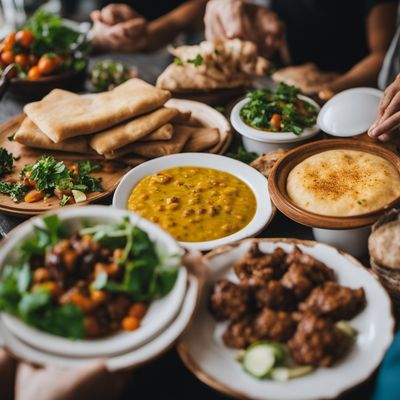
Fattah bi-as-samna
Fattah bi-as-samna is a traditional Lebanese dish that is made with pita bread, lamb, and a clarified butter sauce. It is a rich and flavorful dish that is perfect for a...
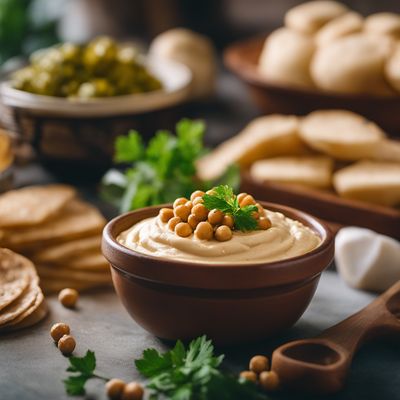
Fattet hummus
Fattet hummus is a traditional Lebanese dish that is made with chickpeas, yogurt, and pita bread. It is often served as a main course or as a side dish.

Fattah bi-al-lahm
Fattah bi-al-lahm is a traditional Lebanese dish that is made with pita bread, lamb, and a tomato-based sauce. It is a hearty and flavorful dish that is perfect for a special...
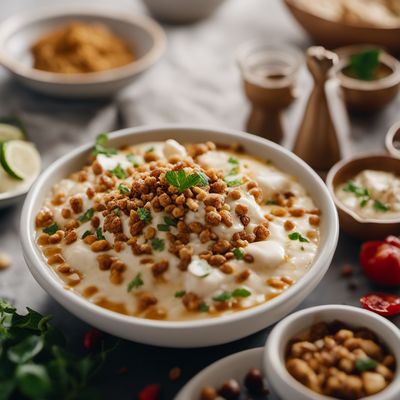
Fatteh
Fatteh is a Middle Eastern dish that is typically served as a breakfast or brunch item.
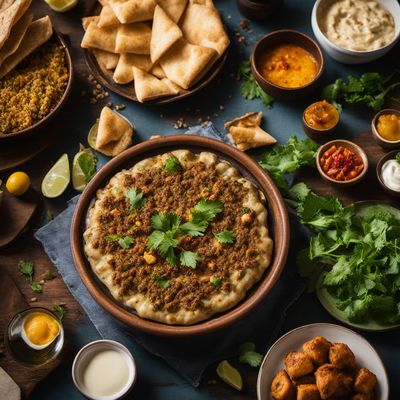
Fattah bi-az-zayt
Fattah bi-az-zayt is a traditional Lebanese dish that is made with pita bread, lamb, and a garlic-yogurt sauce. It is a hearty and flavorful dish that is perfect for a special...

Fattoush
Levantine Bread Salad
Fattoush is a Middle Eastern salad that is perfect for a light lunch or dinner. It is a combination of fresh vegetables, such as tomatoes, cucumbers, and radishes, all tossed...

Booza
Booza is a Middle Eastern ice cream that is known for its unique texture and stretchiness. It is made with mastic, a resin that is extracted from the bark of the mastic tree,...

Makdous
Pickled Stuffed Eggplant
Makdous is a traditional Middle Eastern dish made from baby eggplants stuffed with a mixture of walnuts, garlic, and red pepper flakes, then pickled in olive oil. It is a...
Levantine cuisine recipes Browse all »

Levantine Vanilla Slice
Silky Sweetness: Levantine Vanilla Slice Delight

Grilled Fish with Levantine Flavors
Zesty Levantine Grilled Fish: A Burst of Mediterranean Flavors

Levantine Orange Blossom Cake
Zesty Delight: Levantine Orange Blossom Cake
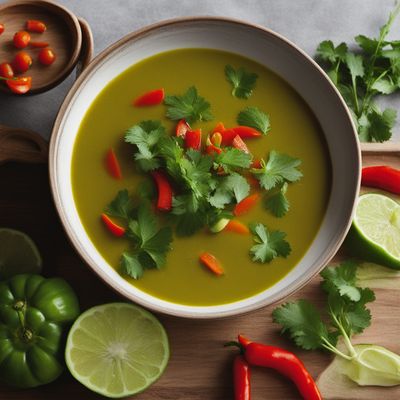
Levantine Milpa Soup
Harmony of Levantine Flavors: Milpa Soup
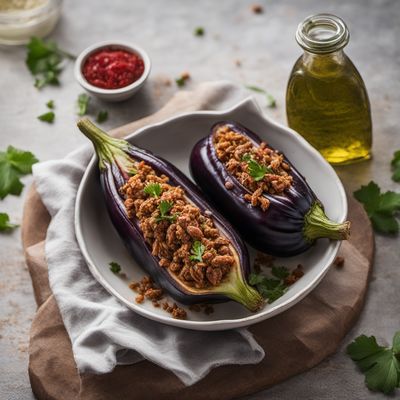
Stuffed Pickled Eggplants - A Flavorful Delight from Levantine Cuisine
Savor the Tangy Delight: Stuffed Pickled Eggplants from the Levant
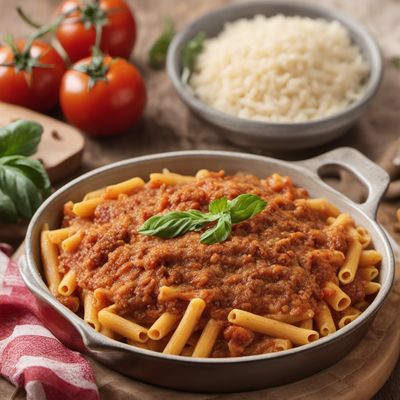
Levantine-style Macaroni Pasticcio
Savory Macaroni Delight: Levantine-style Pasticcio
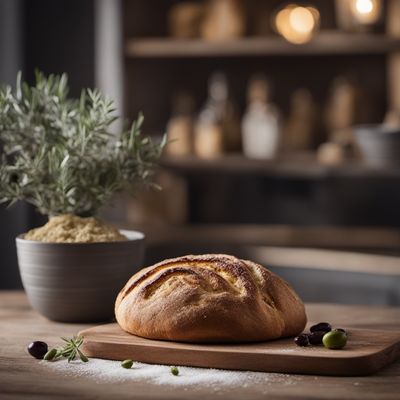
Levantine Olive Bread
Mediterranean Delight: Levantine Olive Bread

Levantine Lamb Fattah
Savor the Richness: Levantine Lamb Fattah

Levantine-style Butternut Squash Casserole
Harmony of Flavors: Levantine Butternut Squash Delight

Levantine-style Roasted Lamb
Za'atar-infused Roasted Lamb with Middle Eastern Flavors

Levantine-Style Soft Pretzels
Za'atar-infused Soft Pretzels: A Levantine Twist on a German Classic
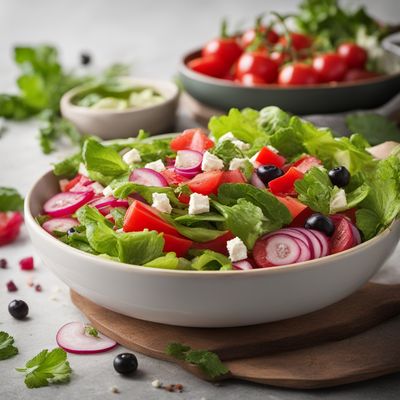
Fattoush Salad
Levantine Delight: Refreshing Fattoush Salad